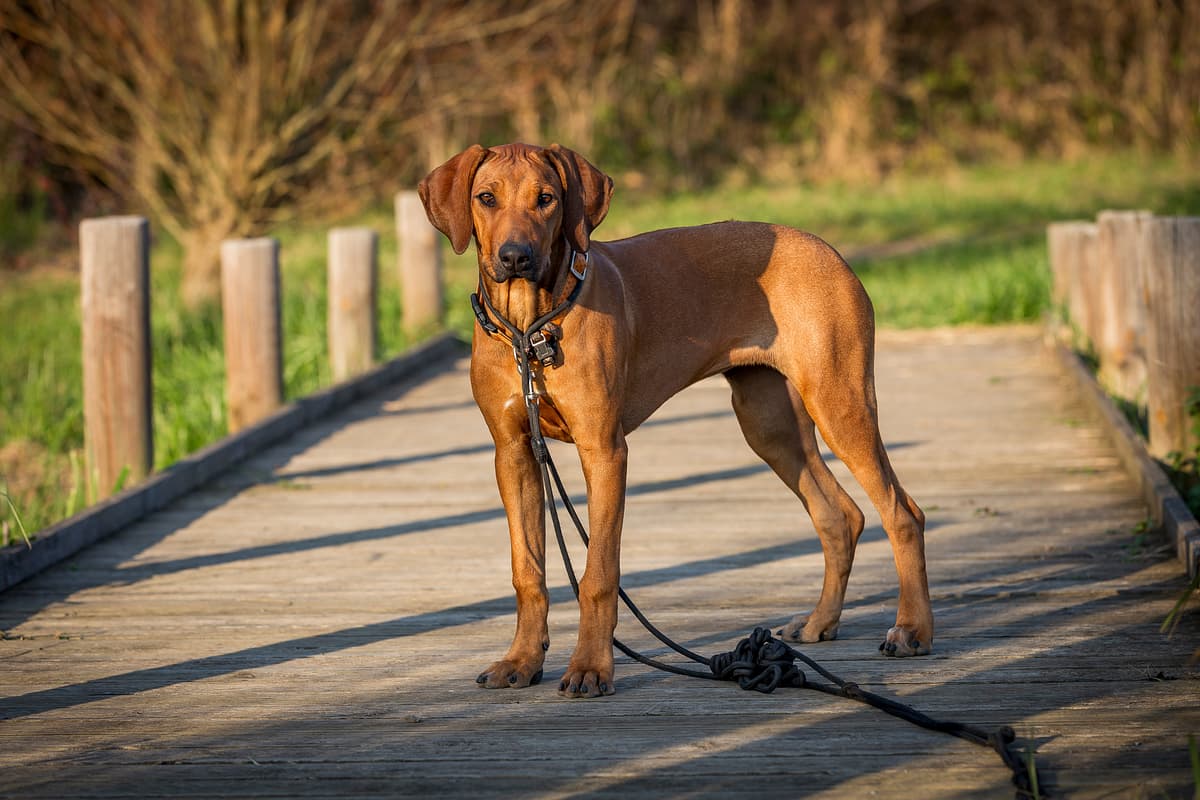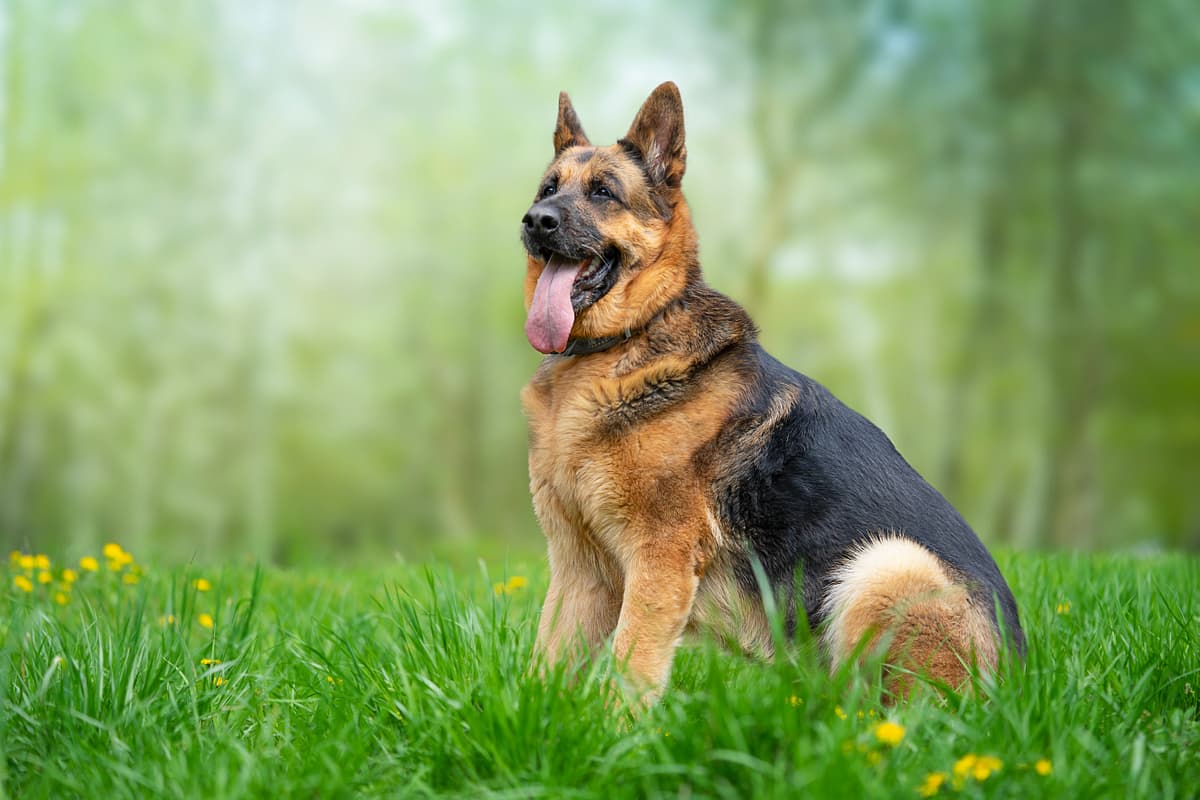Rhodesian Ridgeback vs German Shepherd
Discover the differences between Rhodesian Ridgeback and German Shepherd to make the best choice for your situation.
Try different breeds

Rhodesian Ridgeback
Muscular, athletic, and dignified, this breed stands out for its trademark ridge of hair and strong-willed yet loyal personality. Affectionate with family, it thrives on activity and companionship.

German Shepherd
Confident, loyal, and highly intelligent, this breed thrives as both a devoted family companion and a reliable working partner. Always alert and eager to learn, it adapts to many roles with ease.
Quick comparison
Large
36–41 kg
Short, dense
10–12 years
29–34 kg
High energy
Large
30–40 kg
Double coat, dense undercoat
9–13 years
22–32 kg
High energy
Personality & behavior
Compare the personality traits and behavioral characteristics of both breeds.
Rhodesian Ridgeback
Reserved but affectionate with familiar people
Learns quickly, responds well to training
High stamina, enjoys regular physical activity
Likes interactive play, not overly exuberant
Adjusts moderately to new environments and changes
German Shepherd
Warm with family, reserved with strangers
Quick learner, highly trainable and alert
Needs regular activity and vigorous exercise
Enjoys games, interactive and engaging
Adjusts well to new situations and environments
Care needs
Exercise, grooming, and daily care requirements
Rhodesian Ridgeback
Hip dysplasia, elbow dysplasia
German Shepherd
Hip dysplasia, elbow dysplasia
Suitability
How well each breed fits different living situations and families
Rhodesian Ridgeback
Challenging for beginners
Requires experienced handler due to independence and strength
Not apartment friendly
Needs space and regular exercise, may become restless in small spaces
Excellent fit
Thrives in active homes with regular outdoor activities or exercise
Supervision needed
Large size and high energy may overwhelm small children
Can be selective
Tolerates other pets if socialized early, may show prey drive
Not recommended
Dislikes being left alone for extended periods, may develop destructive habits
German Shepherd
Challenging for beginners
Needs experienced, consistent training and socialization
Not ideal
Needs space and frequent exercise to prevent boredom
Perfect fit
Thrives with active owners who can provide daily physical and mental challenges
Highly suitable
Loyal and protective, can be gentle and patient with proper socialization
Usually compatible
Can get along with other pets if raised together and well socialized
Prone to anxiety
Dislikes being left alone for long periods and may develop behavioral issues
Breed strengths
What each breed excels at and their best qualities
Rhodesian Ridgeback
- Loyal to family members
- Strong, athletic build for outdoor activities
- Generally quiet and calm indoors
- Highly intelligent and trainable with consistency
- Good stamina for long walks or runs
German Shepherd
- Highly intelligent and quick to learn tasks
- Strong loyalty to family members
- Excellent working and service dog abilities
- Protective instincts make them good guardians
- Adaptable to various training activities
Challenges & considerations
Potential challenges and considerations for each breed
Rhodesian Ridgeback
- Can be stubborn or independent-minded
- High prey drive toward small animals
- Needs significant daily exercise and stimulation
- May be reserved with strangers
- Prone to boredom-induced destructive behavior
German Shepherd
- Prone to hip and elbow dysplasia
- High exercise needs require daily activity
- Can develop separation anxiety if left alone
- May be wary of strangers without socialization
- Heavy seasonal shedding requires frequent grooming
Ready to choose your perfect breed?
Learn more about each breed or compare other breeds to find the perfect match for your lifestyle.
Discover more helpful tools
Make use of our other free tools to get the most out of your pet experience
